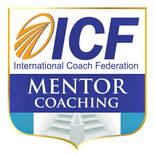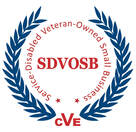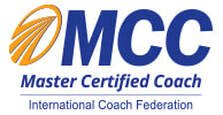|
Who doesn't love Tim ferris - I still reference his book The 4-Hour Workweek often. If you are serious about positive change in your life, I recommend his books and that you follow him.
One of his priceless tips is a list of nine habits to stop doing - these are time sucking traps that entrepreneurs and professionals often engage in without even realizing it. Here's a summary of the nine tips - some of them are straight from the book others are embellished with my thoughts: 1. Don't answer calls from unknown numbers. It's probably a telemarketer. Just don't answer. Make a carefully crafted voicemail that will encourage potential clients, etc. to leave a message. 2. No emails first thing in the morning or last thing at night. Give your brain time to wake up in the morning and don't keep your brain awake at night when you should be starting to relax. 3. Avoid meetings or phone calls with no clear agenda or end time. As Ferris says in his book, ask for an agenda in advance so you can get a clear idea about the meeting. Further, most meetings should last no longer than 30 minutes. 4. Do not let people ramble go. This is especially important in coaching situations. In a coaching session every minute counts - so catching up or chatting is costing the client money. Avoid it and get to the point right away - the agenda. 5. Do not check email constantly. Set specific times to check your email - put yourself in control and not the other way around. 6. Strategize communications. As Tim says "Do not over-communicate with low-profit, high-maintenance customers." Not just customers, but clients, students, fellow workers, etc. Your time is valuable, if you are not getting value from the communication or it's sucking energy or value from you - axe it. 7. Do not work more to fix overwhelmingness - prioritize. This is especially for entrepreneurs and solopreneurs. Without prioritizing tasks everything takes on an air of urgency. Start your day with a list prioritizing the tasks you need to accomplish that day. 8. Do not carry a smart phone 24/7. This is a hard one. But try it. Even if you leave your phone in another room for just an hour a day, do it We are becoming slaves to our technology, remember to make time for you, your family or just to veg out. If the phone is there, once you take the call or answer the email, you might as well just go back to work as your mind is now in work mode and no on yourself or your family. 9. Do not expect work to fill a void that non-work relationships and activities should. Your co-workers shouldn't be your only friends. Schedule life and defend it just as you would an important business meeting. This is so true! Learn more about Tim Ferris here: http://fourhourworkweek.com/blog/. Tim is truly a brilliant man and someone I pay close attention to.
1 Comment
1. Ethical Sensitivity - awareness of self, of harm, of consequences, of impact of behavior, of intention.
2. Ethical Discernment - reflection, emotional awareness, problem solving process. Ethical decisions. 3. Ethical Implementation - What blocks me/ what supports me? How to implement decisions. 4. Ethical Conversation - Defending the decision, going public, connecting to principles. 5. Ethical Peace - Living with the decision, supports networks, crisis of limits, learning from the process, letting go. 6. Ethical Growth and Development of Moral Character - Utilise learning to enrich moral self-knowledge, to extend ethical understanding, become more ethically attuned and competent. Sourced from Michael Carroll's and Elisabeth Shaw's Ethical Maturity in the Helping Professions - Making Difficult Life and Work Decisions. (2012) PsychOz Publications Australia. "Having the reflective, rational, emotional and intuitive capacity decide actions are right and wrong or good and better, having the resilience and courage to implement those decisions, being accountable for ethical decisions made (publicly or privately), being able to live with the decisions made and integrating the learning into our moral character and future actions."
Sourced from Michael Carroll's and Elisabeth Shaw's Ethical Maturity in the Helping Professions - Making Difficult Life and Work Decisions. (2012) PsychOz Publications Australia. |
ScottHowardCoaching LLCAuthorScott Howard is a professional executive coach and leadership coach focusing on human empowerment and maximizing potential. Archives
June 2020
Categories |
 RSS Feed
RSS Feed



